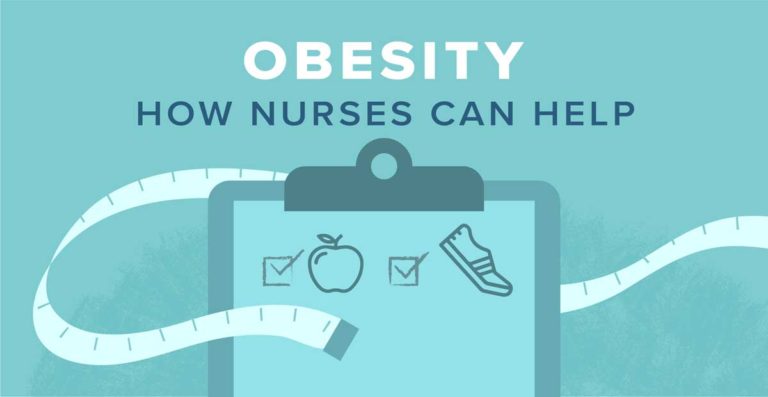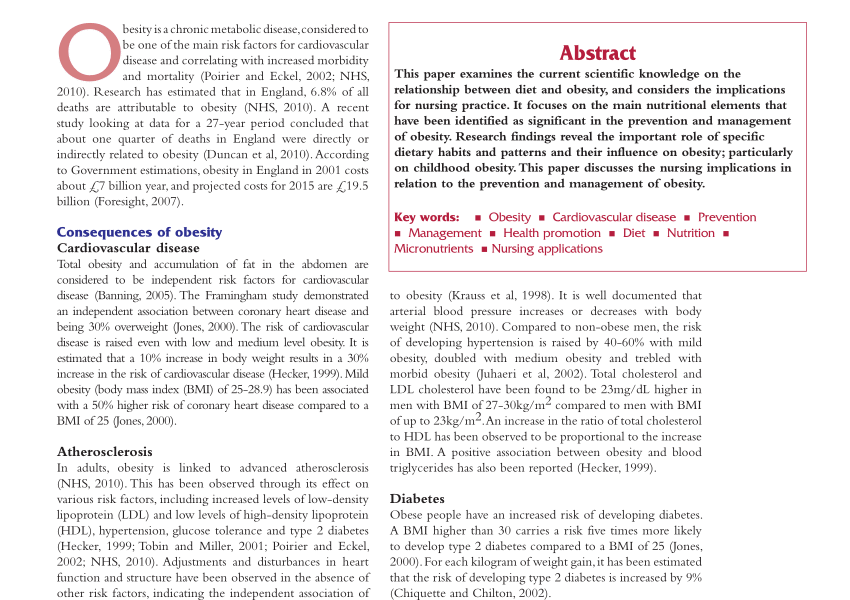What Role Does Nurses Play In Combatting Obesity
In the ceaseless battle against obesity, a silent but significant sector of our society is making substantial strides in promoting wellbeing and longevity – our dedicated and caring nurses. Within this piece, we endeavor to shed light on how nurses are on the frontlines, serving as invaluable soldiers in the war against the plague of obesity. While obesity paves a swift path to a diminished lifespan, nurses provide essential resistance through education, guidance, and support, playing a pivotal role in battling this global crisis. Together, let’s uncover the profound impact of these healthcare professionals in their fight against obesity.

Understanding the Obesity Epidemic
Obesity, as we know, is a complex disease that is characterized by an excessive amount of body fat. It is not just a cosmetic issue, but a severe health crisis that affects millions of people worldwide. According to official statistics from the World Health Organization (WHO), around 13% of the world’s adult population was obese in 2016, and the figures have been on a steady rise since then.
Definition and prevalence of obesity
Obesity refers to a condition where a person’s body mass index (BMI), which is calculated based on their height and weight, is 30 or greater. This excess fat in the body can lead to severe health complications, reducing the individual’s quality of life and life expectancy. Despite worldwide efforts to address and contain this lethal epidemic, its prevalence continues to escalate, affecting people across all age groups and socio-economic strata.
Impact of obesity on health and society
Apart from the health ramifications, obesity also places an enormous burden on the social and economic aspects of our societies. Conditions such as heart disease, stroke, type 2 diabetes, and certain types of cancer are closely tied to obesity. It not only diminishes a person’s overall quality of life but also contributes to a considerable increase in medical costs and a decrease in productivity – a hurdle that most economies struggle to overcome.
Causes and risk factors of obesity
The causes of obesity, in most cases, can be traced back to simple equations of calories consumed and expended. However, it’s not just about eating too much and moving too little. Factors such as genetics, behavior, metabolism, environment, culture, and socio-economic factors also play critical roles. Certain medical conditions and medications can also contribute to weight gain, thereby increasing a person’s risk of obesity.
The Role of Nurses in Healthcare
Nurses form an integral part of the healthcare landscape, existing as the backbone of most healthcare institutions. The responsibilities that a nurse undertakes are multifaceted, with the range of duties depending largely on their level of expertise and the medical setting they choose to work in.
General responsibilities of nurses
Beyond providing physical care to patients, nurses also take on the role of coordinating patient care from admission to discharge, conducting health assessments, and collaborating with the rest of the healthcare team to ensure the best patient outcomes. They focus on all aspects of patient care, ranging from physical to emotional support.
Nursing professionalism and ethics
Nurses hold their professionalism standards and ethics in high regard. They adhere closely to a code of ethics that guides their actions and behavior in their capacity as healthcare providers. Patient privacy, dignity, honesty, and advocating for patients are at the heart of nursing ethics and professionalism.
Collaboration with other healthcare professionals
Being part of a healthcare team, nurses collaborate extensively with other healthcare professionals like doctors, dieticians, pharmacists, and social workers, to name a few. This team approach ensures comprehensive healthcare services for patients, fostering better health outcomes and improved patient satisfaction.
Assessing Patients for Obesity
As frontline healthcare professionals, nurses play a significant role in identifying and assessing obesity in patients.
How nurses identify obesity
Recognizing obesity in a clinical setting rests primarily on calculating a patient’s BMI. A preliminary discussion about the patient’s weight, coupled with a physical examination and analysis of medical history, can also aid in identifying obesity.
Tools and methods for obesity assessment
Body mass index is the most commonly used tool for assessing obesity. In addition, waist circumference can indicate the presence of harmful levels of visceral fat, which can increase a person’s risk of developing obesity-related health issues.
Challenges in obesity diagnosis
Diagnosing obesity, especially in early stages, can pose challenges. Social stigma and personal bias may often prevent patients from seeking help or admitting to their weight issues. Similarly, healthcare professionals’ reluctance to initiate conversations about weight, fearing they might offend, may also lead to missed diagnosis.
Counseling and Health Education
Health education and counseling form pivotal parts of managing and preventing obesity.
Importance of patient education in obesity prevention and management
As nurses, we appreciate the power of education in transforming the health trajectory of a patient. Education about the risks of obesity, the benefits of weight loss, and healthier lifestyle choices can empower patients to take ownership of their health.
Techniques for effective health education
To ensure the message’s effectiveness, a nurse needs to cater to the patient’s specific learning style. Educational materials should be tailored to a patient’s unique needs, using tools like brochures, videos, apps, or workshops for better understanding and retention.
Nurse-led educational programs for obesity
Nurse-led educational programs for obesity management provide a comprehensive overview of weight management techniques, lifestyle modification suggestions, and follow-up support. These programs often combine theoretical knowledge with practical strategies, allowing patients to effectively implement healthier practices in their daily lives.

Nutritional Guidance
Role of nurses in providing nutritional advice
Nurses play an instrumental role in educating patients about proper nutrition. With their knowledge and skills, they can provide accurate and scientifically validated dietary guidance, helping patients make healthier food choices.
Understanding nutritional needs of obese patients
Obese patients usually require a tailored nutritional approach that not only focuses on weight loss but also takes into account co-existing health conditions. By understanding the unique nutritional needs of obese patients, nurses can help create and implement a comprehensive and customized diet plan.
Educating patients about healthy eating habits
Educating patients about nutritious food choices, portion control, and meal-time routines can help them understand the importance of maintaining a healthy diet. Nurses can also encourage patients to monitor their food intake, making them aware of their eating patterns and enabling them to make changes effectively.
Encouraging and Monitoring Physical Activity
Importance of physical activity in obese patients
Regular physical activity is a vital element of weight management and overall health. For people struggling with obesity, it can help reduce body fat, improve muscle tone, boost mood, and reduce the risk of obesity-related health problems.
Strategies to encourage patients to increase physical activity
One of the most effective ways to get patients moving is to introduce gradual changes into their daily routine. Encouraging activities that the patient enjoys can also yield better compliance. Regular follow-ups and progress assessments can motivate patients to adhere to their exercise programs.
Monitoring progress and adjusting exercise plans
Regular monitoring is essential to assess progress and make necessary adjustments to the exercise plan. Nurses can help track these changes and provide feedback and encouragement, thereby promoting adherence to physical activity.

Facilitating Behavior Change
Using motivational interviewing to foster change
Motivational interviewing is a collaborative, patient-centered communication strategy that can help patients explore their motivations for change and work to overcome ambivalence. By establishing a trusting and empathetic relationship, nurses can guide patients towards recognizing their unhealthy behaviors and committing to positive change.
Overcoming resistance to change
Resistance is a natural response when behavior change is involved. By acknowledging the challenges, focusing on small, achievable goals, and providing ongoing support, nurses can help patients navigate their resistance and move closer to their health goals.
Long-term support for maintaining lifestyle changes
Maintaining lifestyle changes is perhaps the hardest part of the obesity management journey. As nurses, we hold a vital position in providing continued support, guidance, and motivation to keep patients on track towards sustainable, healthy choices.
Medication Management
Assisting with medication regimen for obesity-related conditions
Obese individuals often have to manage multiple diseases and associated medications. Nurses can assist in setting up medication schedules, ensuring they’re taken correctly, and tracking their effects on the patient’s overall health.
Educating patients about medication safety and adherence
It is crucial for patients to have a firm grasp on the importance of medication safety and adherence. Nurses can educate patients about potential side effects, interactions, and the significance of regular intake to ensure therapeutic effectiveness.
Managing potential side effects and interactions
Predicting possible drug side effects and interactions is an essential aspect of patient safety. By monitoring symptoms, conducting regular check-ups, and maintaining open communication, nurses can manage and mitigate any undesirable medication effects.

Surgical Care and Aftercare for Bariatric Surgery Patients
Preoperative nursing care
Prior to bariatric surgery, nurses play a critical role in educating patients about the process and preparing them both physically and mentally. They conduct assessments, assist in the necessary tests, and provide the patient with the necessary comfort and reassurance.
Postoperative nursing care
Post-operative care involves closely monitoring the patient’s vital signs, managing pain, avoiding complications, and fostering quick recovery. The nurse also educates the patient and their family about at-home care, including wound management, diet changes, activity restrictions, and medication regimen.
Educating patients about post-surgery lifestyle adjustments
Once the patient returns home, long-term weight control becomes the end goal. Nurses play a pivotal role in guiding patients through the necessary lifestyle changes to sustain the weight loss achieved through surgery, such as dietary changes, physical activity, and regular follow-ups.
Advocacy for Policies Supporting Healthy Weight
Participating in public health initiatives
We, as nurses, have a responsibility to engage in public health initiatives aiming at promoting a healthier lifestyle and preventing obesity. We can strive to influence policy-making, participate in community education programs, and advocate for health equity and obesity prevention measures.
Advocating for healthier food and activity environments
Through our informed voice, we can advocate for environmental changes that promote healthier food choices and encourage physical activity. This could involve lobbying for better food labeling, promoting healthy food availability, and seeking safer environments for physical activities.
Supporting patient access to obesity treatments and interventions
We can also advocate for policies that increase patient access to obesity treatments and interventions, ensuring every individual, irrespective of their socio-economic status, can avail of the care they need to battle obesity effectively.
The role nurses play in combatting obesity is integral, diverse, and complex. It requires empathy, knowledge, patience, and a whole lot of compassion. As champions of health, we have a tremendous responsibility to our patients and our community to lead the way in preventing and managing obesity.



Pingback: Obesity Code Where To Buy